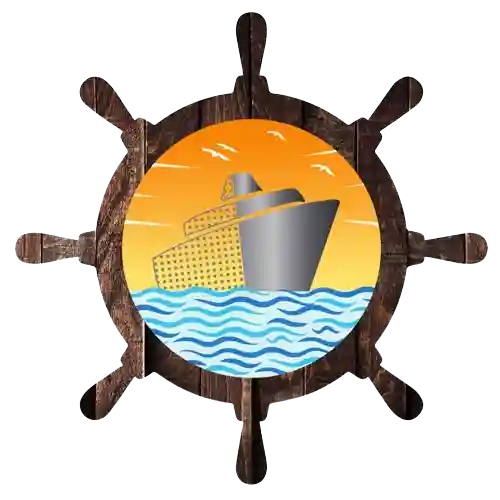RANKS IN MERCHANT NAVY

Being in a job that requires an immense level of professionalism, wherein any mishap has adverse consequences, thenavy rank system makes the working process smooth and efficient. The hierarchy in the navy establishes a decorum, a healthy working framework, easy learning for juniors, healthy communication between different shipping departments, and much more.
As mariners come from and sail all over the world, so it is very essential to have merchant navy ranks that must be universally accepted. This ensures better coordination among sailors to give and follow commands from respective ranks. The pride, responsibility, and uniform of the respective ranks of navy is still the affection of many seafarers to choose it as their most prominent career option.
There might be some changes depending upon flagship and shipping company in the nomenclature and work assigned to specific rank holders. Generally, the ship’s working has been divided into three subdivisions, termed as –
- Deck department
- Engine department
- Catering department
Whenever a task is assigned either in the deck or the engine department the men are divided into two sub-divisions to accomplish it in the best manner, which are –
- Officers
- Rating rank
Now, you may already know the ranks and departments in the Merchant Navy, but do you know how to actually get those ranks—what courses to do, which colleges to aim for, and how to finally sail on ships as an officer? You will get clear answers to all such questions in the free guidance content available on the “Merchant Navy Start” App.
Download our app “Merchant Navy Start” – a one-stop solution for every Merchant Navy aspirant’s queries. Now any latest update is just a click away. Many students miss out on important application forms, but with this app you get timely notifications for all major forms. If you have any medical query, the answer is available on the app, along with a free guidance series that is updated in real time.
Deck Department and Ranks
The bridge is the main hub of navigation and watchkeeping governed by the deck department and headed by the captain or the master. Advanced and critical machinery plays a major role in the proper and safe navigation of a vessel.
Seafarers highly skilled in navigational, cargo handling operations, and berthing operations are under the deck department.

1. The Captain

The Captain (or the Master) is the most superior authority of the vessel. He is accountable for all the jobs on ship, that are achieved onboard.
The Captain is always in command whenever onboard and is accountable for running the ship under a certain set of rules and regulations. The Captain is entrusted to ensure optimal functionality, bearing minimal expenses. The captain is solely responsible for any mishaps when onboard.
2. The Chief Officer/ First Mate

A Chief Officer stands in the position of the Master in the absence of a captain. He accomplishes the orders of the master and is also the executive head of the deck department.
He looks after the vessel’s crew; he has been given a task to train deck cadets onboard. The Chief Mate has a hectic schedule not only when the ship is at sail, but also when the vessel is at the port. There are many more responsibilities for which the chief mate is in charge, on a ship like fire prevention system, security instruments, accommodation functioning also several onshore operations such as cargo gearing, berthing, etc. are accomplished under the surveillance of Chief Officer.
Generally, the Chief Mate is so busy in cargo operations ashore that he has no time to get indulged in port watch duties. Although when onboard he is on safe navigational watches between 0400 hours to 0800 hours and also between 1600 hours to 2000 hours.
3. Second Officer/ Second Mate

The Second Mate looks after the charts, their publication onboard, and tries to keep them up to date. He also plays a major role of a medical officer on board, with all medical services under his control.
Every deck rank holder has a specific time of watch onboard and on ports, so the second officer has to keep navigational watch between 1200 hours to 1600 hours and then from 0000hours to 0400 hours. Generally, when on port his duty time is from 1200 hours to 1800 hours and 0000 hours to 1200 hours.
4. Third officer/ Third Mate

Third Officer regulates the bond store onboard and maintains most of the port documents required by the master. The third officer on a vessel is also in charge of all Fire Fighting Appliances (FFA) and Life Saving Appliances (LSA) like Fire Extinguishers, Portable Foam Applicators, Fire Man Suit, and so on.
Being an Officer on Watch (OOW), he is also assigned a specific time frame for a safe navigational watch which is from 0800 hours to 1200 hours and again in the evening from 2000 hours to 0000 hours.
5. Deck Cadet

He assists the OOW in his learning. Deck cadets are the fresh, enthusiasts, filled with a feeling of learning every bit, when at work. He has to learn as much as he can to become a better officer in the future and clear exams with what he had learnt onboard.
He has been given a task in such a manner so that he can gradually learn the working of several critical types of equipment on bridge and can later confidently appear for his examinations.
Deck Crew

6. Bosun
Bosun is the chief of the rating section in the deck department and does the job assigned to him with the cooperation of the Chief Mate.
7. Able Seaman
Able Seaman also possesses merchant mariner’s document as per the advance nautical terminology which makes him able to assist deck department.
8. Ordinary Seaman (OS)
OS is assigned multiple tasks such as cleaning the deck, scaling, buffing, often painting superstructure. Wiring, rigging, splicing wire, overhauling are some more activities undertaken by OS. Under the Bosun or the Chief Mate, OS also manages cargo operations.
9. Trainee Ordinary Seaman
A Trainee Ordinary Seaman is just like a deck cadet but for rating ranks.
Engine Department and Ranks
Mariners engrossed in the engine and its respective machines’ maintenance come under the engine department. Marine engineers take account of the fuel, all the quantities needed for propelling ships and also ensure smooth and efficient working of the machineries. Marine engineers and rating persons instilled with special skills are the most prominent asset to propel vessels smoothly and efficiently. Hence it can be easily understood how such a complex functioning of the vessel can be accomplished in a safe and efficient manner with the division of ranks in the navy.

1. The Chief Engineer

He is responsible for the engine department. Chief Engineer keeps strict instructions for the management of pollution caused by ship’s machinery. He monitors ships’ auxiliary machineries and keeps track of the performance of the main propulsion system. He transfers regular reports of bunkering, fuel and lubricating oil and other fluid, etc. to the company’s headquarter. Reporting any sort of damages in machineries or any other technical issues arising has to be done by the chief Engineer.
2. The Second Engineer

The second engineer is assisted by other junior engineers for the day-to-day work in the engine department and has been given a special task to train engine cadets with ship machineries. Frequently the second engineer gives daytime watches in the engine room. He also looks after the documents, copies, and lamination work assisted by the fifth engineer. A highly skilled and specialized Second Engineer is the heart of the engine room, if he has good troubleshooting and leadership qualities then people in the Engine Room have a good time.
3. Third Engineer

Along with the daily Engine Room rounds, the Third Engineer is responsible to check for the machines under the surveillance of the Chief Engineer. The fire room, boiler, and auxiliary machines are the responsibilities of a third engineer. Generally, Boiler and Auxiliary Engines are also the machines looked after by the Third Engineer. All the pump lines, emergency pump lines, provision reefer, and ship spares and stores are also managed by a third engineer. Generally, the duties of the Third Engineer vary from company to company and are clearly recorded in Company SMS.
4. Fourth Engineer

The Fourth Engineer’s duty is to follow his Engine rounds schedule in the Engine Room and manage the working of machines assigned to him. Generally, a Fourth Engineer looks after Purifiers and Compressors on the Ship. Usually, the Fourth Engineer reports to the second engineer. The machines on which he works might differ from ship to ship. On command, his duty is to manage the main propulsion system and water system. Generally, the fourth engineer is also expected to provide medical aid, operation of steam and diesel driven plants and HAVC (heating, ventilation, and air conditioning).
5. Fifth Engineer/ Engine Cadet

He is mainly on board to learn under the guidance of a Second Engineer. His duty is to take soundings, go on Engine round duties, do document work all under the surveillance of senior officers. He also changes oil filters, manages workshop tools, assembling, cleaning, and dismantles the main air compressor, air purifier, and sewage plant under the supervision of a senior engineer.
6. Electrical Officer (ETO)

One of the most important persons onboard. He looks after the electrical and technical aspects onboard. The advanced, unmanned ships (UMS) have special requirements of an ETO, as such ships have immense electrical requirements and computer-controlled machines. With automation becoming a great asset in running a ship, the role of an Electrical Officer is becoming dominant each day.
7. Fitter
Fitter makes sure that all the watercraft components and materials are fitted properly or else he does so with welding or workshop tools. He must be specialized in construction and assembling parts of the machineries. Fitting is an art, and a good fitter is a master of it, thus work becomes relaxed when under the hand of a skilled fitter.
8. Motorman/ Oiler
Smooth and efficient working of machines requires proper oiling from time to time, which is the job of a motorman (oiler). Moreover cleaning the Engine Room and also supporting the duty engineer with daily rounds is a very important task of an Oiler.
9. Wiper
He is responsible for cleaning the machineries and engine areas, he also assists the engine officers as per their command. The wiper is an ongoing rank to become an oiler. Though, not all Ships have a Wiper onboard.
Catering Department and Ranks

Where there will be people, meals of proper nutrition will be necessary for survival. The catering department is employed for cooking and other housekeeping tasks for the crew. Generally, the catering department is headed by a Captain. The number of people employed under the catering department depends upon the type of ship-like, large ship, small ship, or passenger ship.
1. The Chief Cook

The Chief Cook is in charge of preparing meals on time for the crew onboard. He also heads the food store. It is the Chief Cook’s duty to check for the cleanliness of the galley area and the equipment used to do so. The Chief Cook also supports the third mate in maintaining a stock of food items and reporting to the Master. Dining together onboard is the only social quality free time together, here the Chief Cook spreads the fragrance of fondness with his delicious and wide variety of food.
2. Trainee Cooks
He assists the Chief Cook in preparing meals and maintains a record of the food stored onboard. Trainee Cook is not so common now, as the crew has also been reduced as of advanced unmanned machineries.
3. Steward
Steward serves the meals, cleans the office area, maintains records of grocery, food costing, and the documents along with the Chief Cook. Few company officers have the privilege to get their cabin cleaned by stewards.
While concluding the blog, one most important thing is that a multi-million dollar ship carrying cargo worth millions of dollars requires a great deal of co-operation from each and every member on the ship. So, each team member plays an important part in safely navigating the ship from one place to another.
Lastly a message from Chief Engineer Praneet Mehta:
If someone asks me, who are the three most important people onboard Ship? I am surely not gonna say that they are Captain , Chief Engineer or Chief Officer, or Second Engineer. Rather for me, Chief Cook is the most important as GOOD FOOD keeps everyone motivated to work hard. Another important person is the Electrical Officer, who is like a ONE MAN ARMY onboard Ship taking care of anything and everything electrical. I sometimes find him struggling alone as people onboard ship are still not well versed with Electrical Knowledge. Therefore, I guess each and every engineer needs to learn electrical as well, so that they can assist and help the Electrical Officer when needed. Lastly, for me, FITTER is another very important person. A good fitter can make life really easy for everybody onboard ship, as his role of fitting is really important. Some Engineers are very good at fitting but sadly I am not one of them.
Disclaimer :- The opinions expressed in this article belong solely to the author and may not necessarily reflect those of Merchant Navy Decoded. We cannot guarantee the accuracy of the information provided and disclaim any responsibility for it. Data and visuals used are sourced from publicly available information and may not be authenticated by any regulatory body. Reviews and comments appearing on our blogs represent the opinions of individuals and do not necessarily reflect the views of Merchant Navy Decoded. We are not responsible for any loss or damage resulting from reliance on these reviews or comments.
Reproduction, copying, sharing, or use of the article or images in any form is strictly prohibited without prior permission from both the author and Merchant Navy Decoded.





I need your help
Hi, great resource. You should do an article on study materials for those of us working our way up through the USCG exams. You could even tie the exams into the rankings table. I have found one site, uscgexamprep.com, that has both deck and engine questions from the exams.
Join india nave
Hi Ankit WhatsApp us at +91 741734933, for all queries related to merchant navy.
Sir, Here you haven’t mentioned the sailing time for ranks..to be promoted to the next rank .
Will write a blog about it soon.
How Fitter become engineer?
12
I want to know the prizes for chief mate / officer Cap and eppellates
Can keralites apply for merchant navy
Hi Sradha, definitely they can join merchant navy. There is no racism in merchant navy, anyone from any caste, creed and nation can join merchant navy.
Any tip for PRE SEA TRAINING FOR SEAMAN SHIP interview
Hi Shivam, if this is about the seamanship practical then you should prepare the types of knots, ropes, their dimensions, uses and you should also know how to tie a knot. These things are generally asked in the practical exam.
What can do before joining amet – Sponsorship by Maersk or imu- CET
Hello Aryan, both are important, you can apply for the sponsorship even before giving your IMU CET. So, don’t wait for the IMU CET, apply for the sponsorship as soon the form gets released.
Can I join at age of 32 ?,
Male, Btech and Diploma in Mechanical Engineering.
Hi Ravi, you can use our Merchant Navy Calculator to find whether you are eligible for Merchant Navy or not. It will tell you for which course you should go depending on your educational qualification.
General stweard